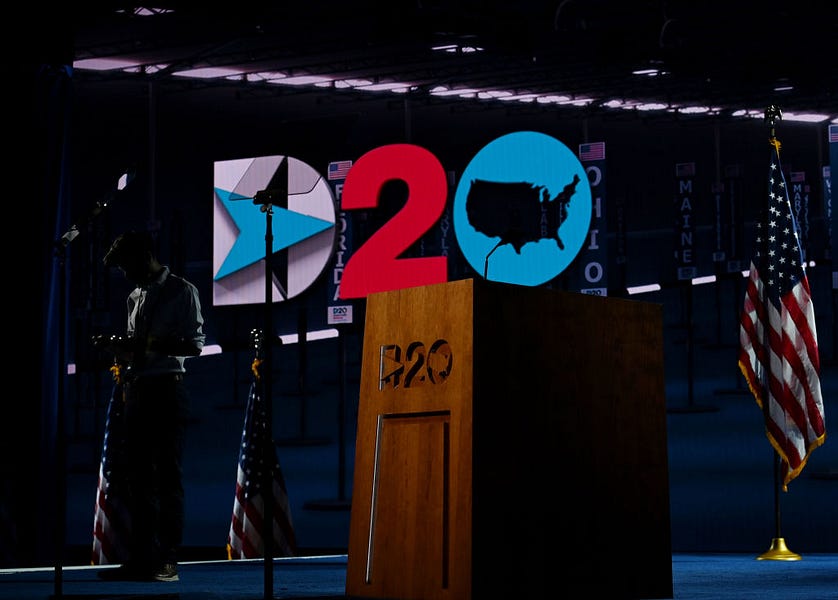President Trump was among several prominent right-wing politicians and media figures to claim that the Democratic National Convention removed the phrase “under God” from the Pledge of Allegiance.
Trump’s claim is an overgeneralization of what happened at the DNC last week: Delegates at two out of the DNC’s 31 caucus and council meetings did not say “under God” when reciting the pledge. Video of the Muslim Delegates Assembly (at the one hour, 10 minute, and 48 second mark) and the LGBTQ Caucus Meeting (at the 1 minute 55 second mark) show that at each meeting the individual leading the group in the pledge left out the phrase. The video does not show any other participants during that time, meaning video evidence exists for only two participants. During the general convention, however, “under God” appeared each of the four times the Pledge of Allegiance was said.
Other conservative media personalities were more accurate in their complaints: Charlie Kirk, for example, tweeted that “The words ‘under God’ were omitted from the Pledge of Allegience [sic] at least twice during the DNC.” However, broader claims that the DNC removed “God” from the Pledge of Allegiance give the incorrect impression that the elision occurred on a wider scale than the two individuals who opted not to say it.
If you have a claim you would like to see us fact check, please send us an email at factcheck@thedispatch.com. If you would like to suggest a correction to this piece or any other Dispatch article, please email corrections@thedispatch.com.
This fact check is available at IFCN’s 2020 U.S. Elections FactChat #Chatbot on WhatsApp. Click here, for more.
Photograph by Olivier Douliery/AFP/Getty Images.







Please note that we at The Dispatch hold ourselves, our work, and our commenters to a higher standard than other places on the internet. We welcome comments that foster genuine debate or discussion—including comments critical of us or our work—but responses that include ad hominem attacks on fellow Dispatch members or are intended to stoke fear and anger may be moderated.
With your membership, you only have the ability to comment on The Morning Dispatch articles. Consider upgrading to join the conversation everywhere.